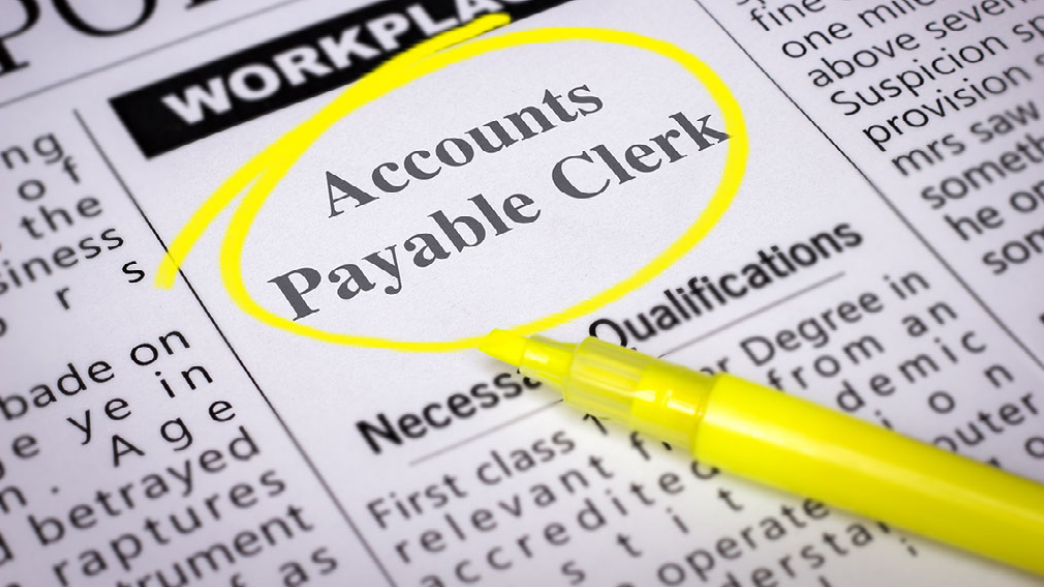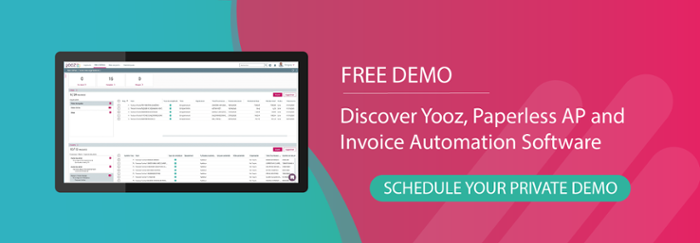What is an accounts payable administrator?
Before going further into duties and responsibilities, it is important to understand the definition (and therefore job description) of an Accounts Payable (AP) administrator. An accounts payable administrator, also known as an accounts payable clerk, is a critical role in the finance department for all sizes of businesses. Accounts payable administrator duties and key responsibilities would typically include things such as processing supplier and vendor invoices, approving payment requests, and other more administrative tasks such as data entry into an Enterprise Resource Platform (ERP) or accounting system, managing compliance procedures, and keeping track of internal expenditure
As you can see from the above, the role of an AP administrator covers a lot of bases. A skilled candidate with a lot of experience will be responsible for managing all payment cycles within the business in an accurate, efficient, and timely manner. They are a key member of the finance team, with their work directly contributing to the daily operational support and administration tasks that underpin critical business functions. But without accounts payable automation, administrators are continuing to be hamstrung by repetitive processes that threaten the growth of the organisation and the role of AP clerks.
What are key accounts payable administrator duties?
The work of an AP clerk covers almost all aspects of the accounts payable process, but can also cover responsibilities such as:
- Overseeing and managing payroll, receipts, purchase orders, invoices, and other financial statements
- Verifying data entry and financial transactions by comparing historical invoices and purchase orders
- Maintaining an accurate, historical, and digital record of financial documents
- Ensuring that vendors and suppliers are always paid in a timely manner and that any payment enquiries are dealt with promptly
- Preparing and producing a detailed and accurate financial report - usually monthly - on business expenditures and providing suggestions for continuous improvement where necessary
As such, there are some key and specific skills necessary for the accounts payable administrator to be successful in their role. While a degree in accounting, finance, economics, or a similar course isn’t always needed for a job in accounts payable, having a basic understanding of bookkeeping and accounting skills is certainly helpful and sometimes even required.
Accounts payable clerks obviously need to have very high attention to detail as well as data entry skills, as the difference between paying £100 and £1,000 per year can easily be missed by anyone flicking over a spreadsheet. As AP administrators will be in constant touch with suppliers and vendors on a daily basis, communication, problem-solving, and acting as a model professional is also an important part of the job.
Why employ an accounts payable administrator?
No business can exist without the accounts payable function, and the role of an AP clerk is important in the fluid exchange of payments to vendors and suppliers. Accounts payable administrator duties are important in accurately tracking money owed, ensuring that payments are correct, and that they are provided on time. The detailed information provided by an accounts payable clerk is essential to providing critical reporting measures and an accurate balance sheet.
AP administrator duties ensure good relationships with suppliers by making sure suppliers' information is accurate and up to date in the company’s systems. By checking and making sure vendors are always paid in a timely manner nurtures long-term relationships that can benefit both sides, such as gaining more favourable payment terms or discounts. Administrators also keep accurate reports to ensure cash forecasts are accurate, but their role also means that they are best placed to reduce the likelihood of financial fraud or errors from entering the AP process.
How do accounts payable administrators benefit an organisation?
One of the biggest and most critical ways accounts payable clerks can benefit organisations is in cash flow management - critical in times of high inflation and an impending recession. Putting in place efficient accounts payable processing plays a key role in ensuring constant, steady cash flow and making sure the business doesn’t live outside of its means. For example, accounts payable clerks can negotiate certain payment terms with vendors and suppliers so that cash flow is maintained and payments are sent on time. AP administrators can also provide a 360-degree view on how much money the business owes, when payments are due, and how much so that they can plan ahead.
Another main benefit of employing accounts payable clerks is in the fight against fraud. The efficient accounts payable processing helps make sure that payments are sent out for the right amount, to the right person, and at the right time. By keeping in constant communication with suppliers, AP administrators help reduce the chances of fraud from taking place, but they can also be helped in their efforts using automation - something which we’ll come onto later. Accounts payable administrators can also help with auditing purposes, storing invoices in an orderly fashion so that they can be securely recorded but also quickly accessed and sent to the relevant authorities - helping businesses keep compliant and escape any regulatory fines.
How can automation help accounts payable administrators?
Now we should have a good understanding of the variety of accounts payable administrator duties. Not only do they cover a lot of areas within the finance department, but they also focus on the processes that drive success. However, as many are still reliant on manual processing within accounts payable, it means that a lot of accounts payable clerks are spending large and valuable amounts of time and resources on repetitive, administrative-type tasks when they could, and should, be focused on more business-critical areas.
Accounts payable automation removes manual and repeatable processes, the need for human intervention, and the risk of error within finance-related tasks. Plus, supported by cloud software - which supports remote or office working - two-factor authentication, and other security-related elements, it makes it a lot harder for fraud to enter the fray, with three-way matching for all invoices and approvals provided in a centralised location for easy auditing.
Accounts payable automation software streamlines the finance workforce and critical workflows, digitising the entire AP process. Invoices can be recorded, analysed, processed, and paid without a single instance of human intervention. Any exceptions - such as when the system flags that an invoice is missing important information or that an invoice has already been paid - can be acted upon by the accounts payable administrator, saving them time while improving the accuracy of the process.
Plus, as the average cost of processing invoices with little to no automation can be eight times greater than the cost of utilising automation in the process, there are significant cost savings that can be realised right off the bat. In a time of financial uncertainty and rising inflation, this could be a saving grace for businesses and accounts payable clerks looking to reduce unnecessary business costs and improve efficiency.









